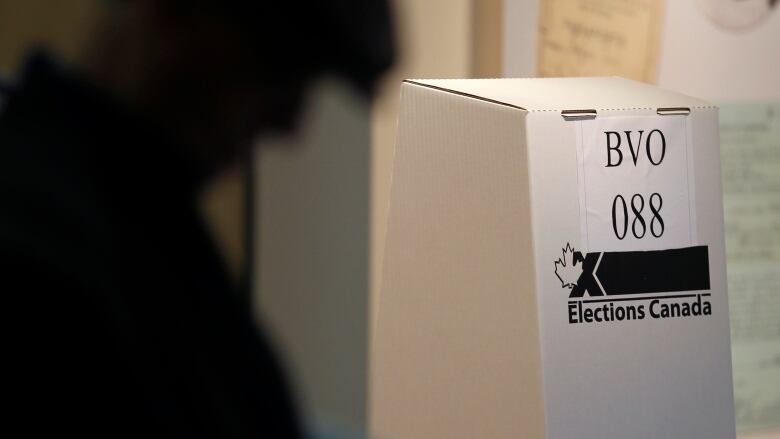Every Canadian should have the right to vote even those living abroad
The charter does not, and should not, protect the rights and freedoms of only the 'right' kind of Canadian

Will it hold true that, in the words of Prime Minister Justin Trudeau, "a Canadian, is a Canadian, is a Canadian"? This week, the Supreme Court of Canada will consider a constitutional challenge to a law that strikes at the heart of what it means to be a Canadian citizen.
The appeal takes aim at legislation enacted in 1993 but loosely implemented until the Harper government began a campaign of rigid enforcement that deprives most Canadian expats of their ability to vote after they have resided outside of Canada for more than five years.
For civic-minded expats whose voting rights have "expired" under the challenged law, the Supreme Court hearing is the final act in a protracted legal drama that has kept their right to participate in the franchise in limbo. (Full disclosure: theCanadian American Bar Association, of which I am president, is an intervener in the case.)
A supposedly'severed' connection
In 2015, a two-judge majority of the Ontario Court of Appeal reversed a lower court decision striking down the law. It deemed the restriction justified because long-term expats had "severed their connection with Canada in pursuit of their livelihoods" and opted out of the "social contract."
The Trudeau government is expected to defend the law as a valid exercise of its policy-making discretion, but also to repeat earlier promises to repeal it. (The Liberal-backed Bill C-11 was introduced in 2016 to achieve just that, butit has languished in Parliament and appears to have all but died.) Even if the government makes good on its word, the guarantee under theCharter of Rights and Freedoms of the right to vote to "every citizen of Canada" would mean little to Canadians if the government of tomorrow could again cause that right to wither beyond Canada's borders.
While charter rights may be subject to reasonable limits, the justifications in this case are paper-thin. Expats have not abandoned or broken the "social contract" because they no longer reside in Canada. In fact, expat Canadians are eager to exercise one of their core responsibilities under that contract choosing their government and continue to be bound by a number of Canadian criminal and other laws that apply extraterritorially, including (notably) those against treason.
Their ongoing legal fight is further evidence that voting is not a mere bargaining chip in the quid pro quo that grounds the state's authority to rule its citizens through law; more fundamentally, it establishes a highly personal sense of home, demonstrating a citizen's belonging and association with Canada.
Typical arguments against expat voting hinge on expats' supposed lack of investment both material and social in Canada. And it's true, for instance, that non-resident Canadians are largely not subject to Canadian taxation. But charter rights ought not to be preserved based on the existence, or indeed the extent, of one's tax bill.
Affecting local matters
As for the alleged "threat" such voting poses to local matters in ridings:that view assumesthat expat voices do not express legitimate Canadian concerns simply because they originate from abroad. In any event, surely there are less harmful alternatives to address the supposedlydistortive impact of the expat vote on local matters than a complete ban on that vote. Most Canadian expats are exemplary ambassadors of Canada. They see the world beyond its borders through a Canadian lens. Being abroad, they will tell you, makes them feel more Canadian not less.
In striking down a similar law affecting expats under the South African constitution, which was itself inspired by the Canadian Charter, the Constitutional Court of South Africa observed: "[t]o the extent that citizens want to take the trouble to participate in elections while abroad, it is an expression both of their continued commitment to our country and their civic-mindedness from which our democracy will benefit."
The charter does not, and should not, protect the rights and freedoms of only the "right" kind of Canadian. Our willingness to tolerate limitations on the expat vote, let alone to do so on the basis of dubious assumptions, tests our commitment to a Canadian community united by a single and equal citizenship. It is telling that in its precedential ruling dealing with this charter right, the Supreme Court found that depriving prisoners who were also perceived as having broken the social contract of what it means to be Canadian of their right to vote was unconstitutional.
Constitutions have been described as "mirrors reflecting the national soul." At a time when the politics of division and exclusion are gaining a foothold globally, how we envision the civic bonds that unite us within and across Canada's borders is all the more important.
Ivo Entchev is the president of the Canadian American Bar Association and a Canadian attorney residing in New York City.
This column is part ofCBC'sOpinion section.For more information about this section, please read thiseditor'sblogandourFAQ.












_(720p).jpg)


 OFFICIAL HD MUSIC VIDEO.jpg)
.jpg)



























































































